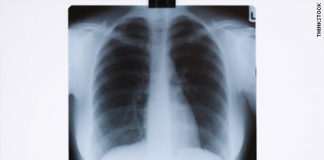Osteoporosis Drugs May Boost Cancer Risk
People who take bisphosphonates, or bone-strengthening drugs for osteoporosis, may have a slightly higher risk of developing esophageal cancer, especially if they take them for several years, a study out this week in the British Journal of Medicine finds.
Women With Osteoporosis Suffer More If They Have Previously Broken a...
Osteoporosis is more common in women who have fractured bones when they were younger -- and they experience a similar loss in health-related quality of life as those with arthritis, lung disease, diabetes and other chronic diseases.
Men Told To Watch Their Step: Consequences Of Failing To Treat...
Leading study author, Dr Jackie Center says: "While women are initially twice as likely as men to have a fracture, once the first break occurs, the risk of a second substantially increases and the protective effects of being male disappear altogether."
Make Or Break Time For Osteoporosis Treatment
Women who do not comply with treatment instructions for osteoporosis or who do not respond to treatment are more likely to suffer further fractures, which seriously affects their quality of life. There is an urgent need to provide support to these patients and address their issues when new therapies are assessed and new treatment guidelines drawn up, according to lead researcher Professor Cyrus Cooper from the MRC Epidemiology Resource Centre, University of Southampton, in the UK.
Calcium Supplements Linked To Increased Risk Of Heart Attack, Study Finds
Calcium supplements, commonly taken by older people for osteoporosis, are associated with an increased risk of a heart attack, finds a study published online in the British Medical Journal. The results suggest that a reassessment of the role of calcium supplements in osteoporosis management is needed.
Could Diabetes Be in Your Bones? Link Between Metabolic Disease, Bone...
Our bones have much greater influence on the rest of our bodies than they are often given credit for, according to two new studies in the July 23 issue of Cell, a Cell Press publication. Both studies offer new insights into the interplay between bone and blood sugar, based on signals sent via insulin and a bone-derived hormone known as osteocalcin.
Side Effects Explained: Why Common Drugs Can Lead To Broken Bones
New research helps to explain why some commonly used drugs come with a serious downside: They up your odds of breaking a bone. The drugs in question, glucocorticoids (e.g. cortisone and prednisone) and the insulin sensitizer rosiglitazone work through entirely different mechanisms as therapies for inflammatory diseases and diabetes respectively...
Calcium Supplements: Too Much Of A Good Thing?
Negative health effects linked to taking too much supplemental calcium are on the rise, according to a commentary appearing in an upcoming issue of the Journal of the American Society Nephrology (JASN).
NASA Studies Find Omega-3 May Help Reduce Bone Loss
NASA-sponsored studies have found that omega-3 fatty acids found in fish oil may play a role in mitigating bone breakdown that occurs during spaceflight and in osteoporosis. Ongoing research for decades has looked for ways to stop bone density loss in astronauts.
Potential Treatment For Bone Death In The Hip From Osteonecrosis
Researchers at Mount Sinai School of Medicine have found a potential new treatment for osteonecrosis, or the death of bone tissue, in people who are treated with steroids for several common medical conditions. There are currently no treatment options for people with this debilitating disease.
Muscle And Bone Diseases Affect Each Other, According To New Theory
Traditionally, doctors and clinicians thought diseases that affect muscles or bones affected those areas specifically. For example, bone diseases only affect bones, or muscle diseases only concerned muscles. But recent evidence supports the notion that...
For Osteoporosis Patients, Exercise Pill One Step Closer To Reality
For osteoporosis patients unable to exercise, help may be on the way. That's because scientists have discovered precisely how mechanical stress, such as exercise, promotes new bone growth. This opens the door to entirely new therapies that can trick bones into thinking they are getting a workout.













